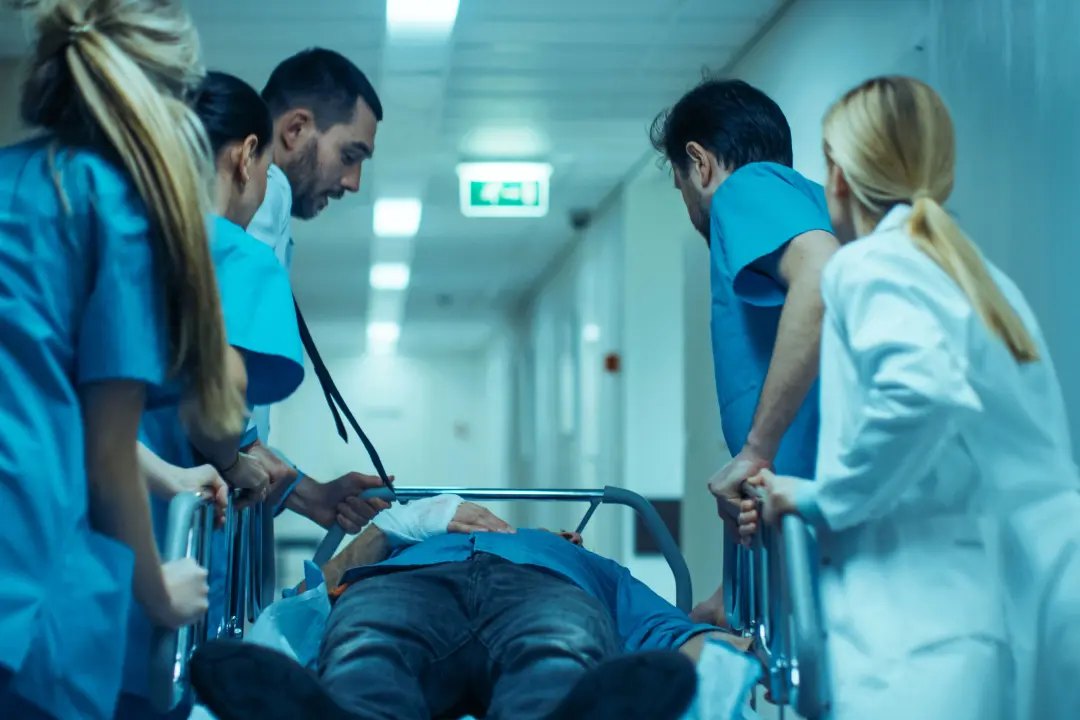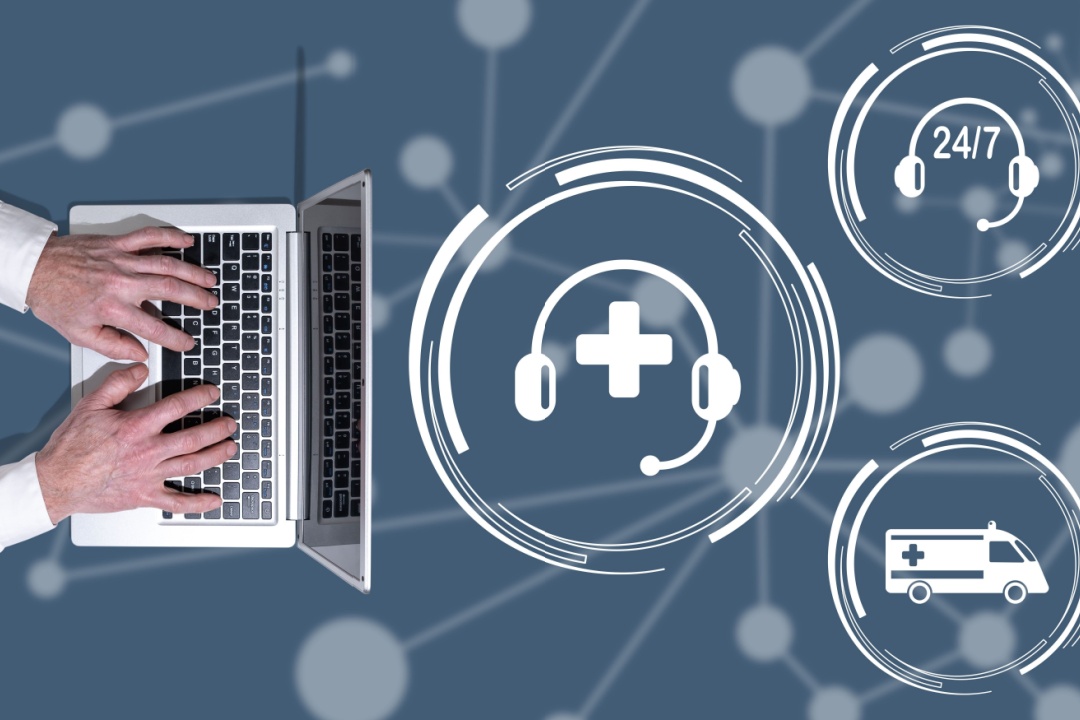Choosing Emergency Medicine (EM) – Becoming an Emergency Physician
Emergency physicians have the privilege of taking care of patients and their families during the most vulnerable moments of their lives—simultaneously being the resuscitationist, detective, team captain, coach, and metaphorical bartender. The breadth of skills and knowledge required to bring order to the chaos of the emergency department on a daily basis is what sets us apart and dictates which types of medical students will be successful and fulfilled by choosing emergency medicine.1
Is EM Right for You?
The “love of every single specialty” seems to be a common feeling among those who pursue EM. In addition to comparing your own traits to those of successful emergency physicians, ask yourself the following questions:
- When you walk through the doors of your emergency department, do you get an overwhelming feeling that you belong there?
- Does the thought of a trauma or code where you can save a life give you a surge of adrenaline?
- When you see a stranger who is injured, do you run to them?
- Do you enjoy the diagnostic inquiry of undifferentiated illness?
- Do clinical challenges requiring the use of a variety of skills sound interesting?
- Do you enjoy a fast-paced work environment?
If you answer “yes” to these questions, then EM may be the right fit for you. You will save lives, solve mysteries, ease suffering, and support others on what may be the worst day of their lives—and you will do it in a clearly defined shift, rather than marathon call days. Emergency physicians are also able to move around the country and world because they are not tied to a patient panel or practice.
What Makes EM Special?
- Undifferentiated patients. EDs have become the diagnostic centers for a growing majority of patients in today’s healthcare system. Emergency physicians often are the first to assess a patient, and a broad differential diagnosis must be considered to ensure that the patient’s symptoms are translated into an appropriate diagnosis.
- Sick or not sick? From the doorway of a patient’s room, emergency physicians must be able to quickly answer this question. They must always first consider the worst possible diagnoses for any given chief complaint, while also considering what is most probable or uncommon (and therefore likely to be missed).
- Quick rapport. Emergency physicians must rapidly establish trust with patients and families they are meeting during times of vulnerability and uncertainty. You are the calm in the storm.
- Critical decision-making. The acuity of the ED requires you to make management decisions based on your clinical assessments, often without the benefit of complete information or diagnostic testing. A tolerance for chaos and uncertainty will serve you well. An emergency physician will make 10,000 implicit and explicit decisions in a shift.2
- Multitasking. This may be better described as “distracted decision-making” because emergency physicians need to rapidly shift their focus amid a variety of distractions, all without letting the quality of their decision-making be affected.
- Teamwork. Relationships within the ED and throughout the institution are crucial. Your character is the cornerstone of your ability to be the leader of a team. Your colleagues need to know they can count on you. Get comfortable trusting your instincts and your team. A successful EM physician is able to appear in control and unflustered, calmly lead a resuscitation, listen to the input of the entire team, and prioritize the many necessary tasks and interventions. They inspire confidence within their own team and among the consulting services.
- Procedures. Emergency physicians must be experts at resuscitation and airway management, plus skilled in a variety of other procedures ranging from basics like suturing and vascular access to lifesaving procedures like pericardiocentesis and thoracotomy.
- Safety net. No patient is too poor, non-compliant, old/young, or pregnant to be seen in an ED. The ED is never closed, and we are never too busy, tired, or distracted to care for the patient in front of us. We take pride in the ability to care for those who cannot care for themselves, and we recognize and value the privilege of helping people on their worst days.
- Episodic care. For the most part, emergency physicians do not have the continuity of care common to many other specialties. We form very short, but important, patient relationships. The successful emergency physician gains fulfillment from even brief encounters.
- Ever-changing. Every day is different and unpredictable. You will be repeatedly challenged with new situations. Just as each day changes, EM is a specialty that continues to change. You grow and gain new skills, perform research to support decisions and care, and keep current with reading, skill— acquisition, and practice.
Work-Life Balance
ED shifts are a sprint, not a marathon. You will be at the hospital for a fixed amount of time, during which you will be working very hard. Then, you will go home to spend time doing the other things you love. Emergency physicians are not “on call” like many other specialists, though you may be asked to cover a shift for a colleague in the event of illness or asked to come in during a disaster scenario. Given the predictable, scheduled nature of their clinical shifts, emergency physicians have a great deal of flexibility in planning their schedules around important life events. Not having a practice where you are responsible for the ongoing care of a panel of patients also provides excellent career portability.
Unique Challenges
While EM is an overall fulfilling choice of specialty, it does come with its own set of emotional, mental, and physical challenges. These stresses come from the pressure to quickly evaluate, treat, counsel, and disposition patients while also being held accountable for meeting quality metrics and improving patient satisfaction—in a chaotic environment that can be worse when dealing with long wait times, patients suffering in pain, alarms ringing, and constant distractions. Emergency physicians must also cope with the physical effects of shift work, as their waking hours may frequently not follow a normal circadian rhythm.
Burnout in EM
Although burnout is a serious risk in any medical specialty, a work environment with high demand and little control is more likely to lead to burnout. The ED is the safety net within the healthcare system, and EM physicians have the privilege and responsibility of caring for the system’s most vulnerable patients. Emergency physicians walk away from shifts having made a tangible positive impact on our patients and community.
EM in a Pandemic
EM physicians served at the forefront of the COVID-19 pandemic, as most COVID patients’ first contact with the healthcare system is in the ED.3
Will this be true for the next pandemic? Yes. Emergency medicine is the doorway to the house of medicine, and that door is never closed, no matter the circumstances.
EM is a dynamic, exhilarating, ever-changing specialty that is best fit for those with strong interpersonal skills, a calm demeanor, and a desire to work as part of a team for brief, poignant encounters. Successful EM physicians are kind, hard-working, and flexible, with a penchant for controlling chaos and tolerance for the inherent emotional toll. The EM lifestyle allows for flexibility and portability, without being responsible for a panel of patients during off-time. Emergency physicians work hard when they are on duty and can play and plan when they are off. It is our privilege to act as a safety net and care for all who present to the ED.
The information contained in this article appears in the EMRA and CORD Student Advising Guide: An Evidence-Based Approach to Matching in EM, a free digital publication available for download, and has been reprinted with permission from the Emergency Medicine Residents’ Association.
References
1. American College of Emergency Physicians. Joint statement on the 2022 emergency medicine residency match. Retrieved December 27, 2022, from https://www.acep.org/news/acep-newsroom-articles/joint-statement-match 2022/.
2. Lex J. EM Mindset — Joe Lex — Thinking Like An Emergency Physician. emDocs. July 11, 2016. http://www.emdocs.net/em-mindset-joe-lex-thinking-like-an emergency-physician/#_edn7. Accessed October 22, 2018.
3. Nguyen J, Lui A, McKenney M, Liu H, Ang D, Elkbuli A. Impacts and challenges of the COVID-19 pandemic on emergency medicine physicians in the United States. Am J Emerg Med.2021;48:38-47.
Authors:
Melanie Camejo, MD
- Assistant Professor
- Department of Emergency Medicine
- University of Missouri-Kansas City
Moira Smith, MD, MPH
- Clinical Informatics Fellow
- University of Virginia Health System
- Chair, EMRA Education Committee
Revelle Gappy
- Oakland University William Beaumont School of Medicine
- Chair, EMRA Medical Student Council



